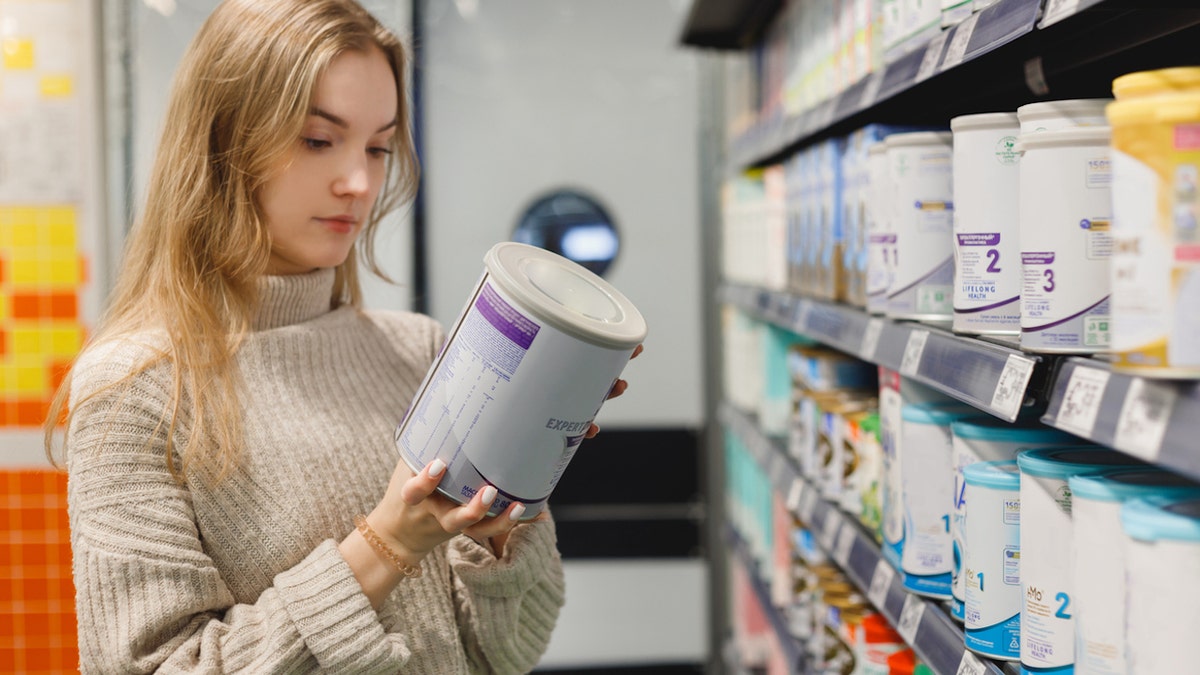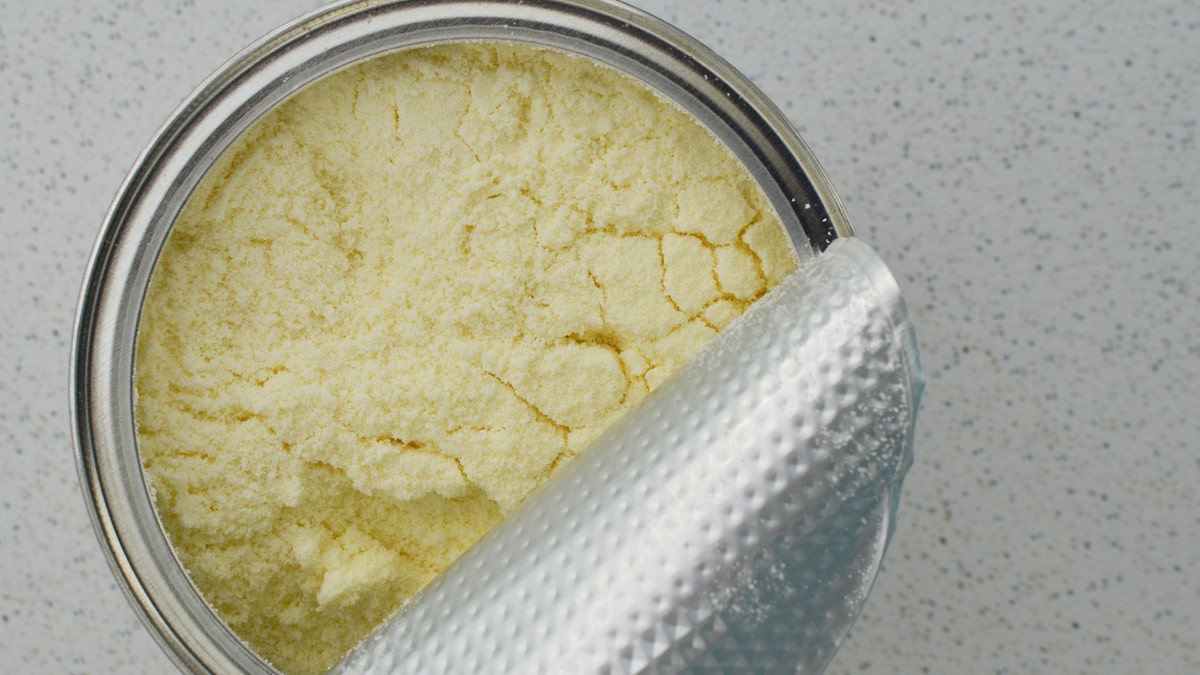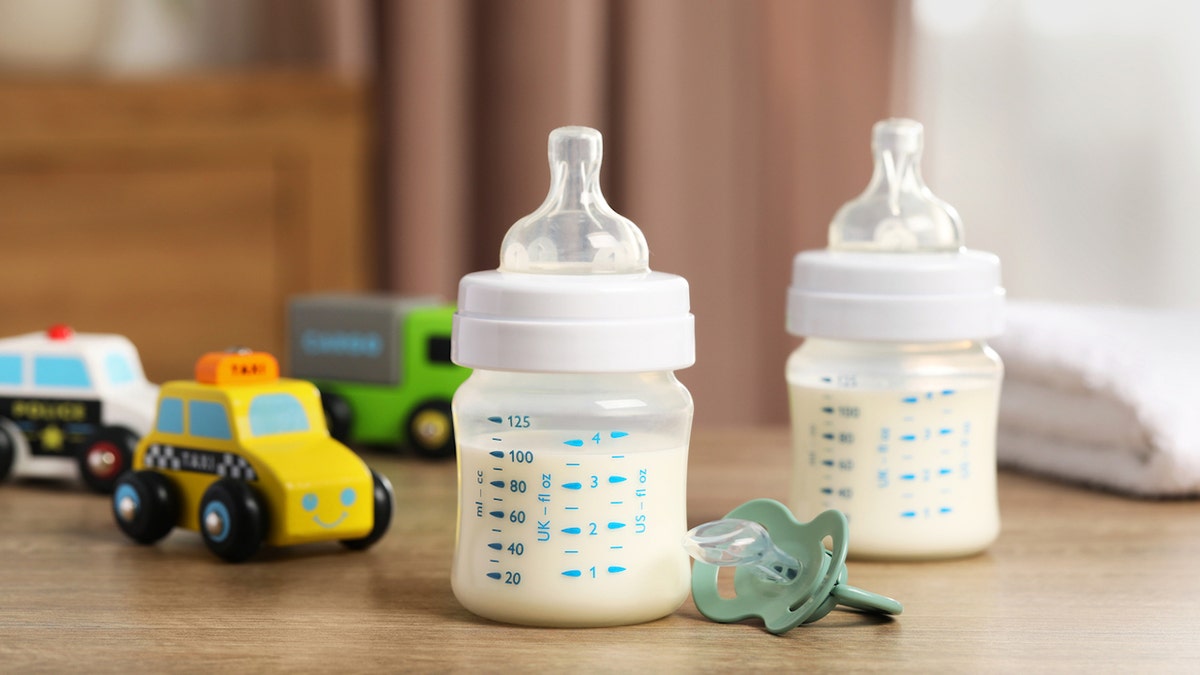Powdered milk products for infants older than 6 months or toddlers 12 months and up might not live up to the claims on the packaging, a new report states.
Although these products are often lumped in with infant formula, the American Academy of Pediatrics (AAP) is warning that they do not offer the same nutritional benefits and should not be used as a replacement for human milk or cow’s milk.
"Older infant-young child formulas (OIYCFs) can safely be used as part of a varied diet for children, but do not provide a nutritional advantage in most children over a well-balanced diet that includes human milk (preferred) and/or cow milk, and these products should not be promoted as such," the researchers wrote in the report, which was published in the online journal Pediatrics on Oct. 20.
BENEFITS OF BREASTFEEDING FOR BOTH MOM AND BABY
"OIYCFs have no specific role in routine care of healthy children and are more expensive than cow milk."
Additionally, these toddler beverages have been criticized as "having components considered to be unnecessary or potentially detrimental," including high or low protein levels, higher sodium content and added sweeteners, the AAP wrote in a press release.

A new report from the American Academy of Pediatrics reveals surprising new findings about powdered milk products for toddlers. (iStock)
Infant formulas must meet certain nutritional requirements to feed babies from birth through 12 months of age, according to the Infant Formula Act.
INFECTIONS FROM POTENTIALLY DEADLY BACTERIA IN BABY FORMULA ADDED TO CDC WATCHLIST
When it comes to formulas for older children, however, the U.S. Food and Drug Administration (FDA) does not enforce any specific requirements, as the AAP stated in its press release.
"As a result, the composition of these drinks is unregulated by the FDA and their promotion is typically characterized by misleading claims," George J. Fuchs III, MD, FAAP, a lead author of the report, stated in the release.

Infant formulas must meet certain nutritional requirements to feed babies from birth through 12 months of age, according to the Infant Formula Act. (iStock)
The researchers claim that these products are often advertised as "the next stage or next step" for toddlers — which could confuse parents or lead them to replace breastfeeding or baby formula with powdered toddler milk products.
Fuchs also calls for companies to clarify the difference between powdered milk for toddlers and "medically necessary pediatric formulas," the latter of which are nutritionally complete.
BREASTFEEDING BAN: GEORGIA MOTHER IS TOLD SHE CAN’T NURSE HER BABY AT WATERPARK, SPARKING DEBATE
"Pressure needs to be placed on the manufacturers to optimize the nutritional value of the toddler drinks and to market them in a responsible fashion, including not co-branding them with infant formulas," he told Fox News Digital.
The researchers call for these products to be labeled as something other than formula, such as "toddler drink" or "toddler beverage," and for them to be displayed separately from formula in stores.

The AAP recommends that mothers continue breastfeeding while supplementing with appropriate foods starting at around 6 months of age until or beyond 2 years old. (iStock)
Also, pediatricians should educate families about the nutritional limitations of powdered milk formulas for toddlers, the researchers advised.
A spokesperson from Nestlé, which makes a variety of powdered milk products for toddlers, said in response to a Fox News Digital query that the company "seeks to provide a range of foods and beverages to support consumers at all stages of life."

Infant formulas must meet certain nutritional requirements to feed babies from birth through 12 months of age, according to the Infant Formula Act. (iStock)
The spokesperson added, "Nestlé has consistent standards that apply to our responsible marketing for products intended for babies and young children. Those standards and practices fully comply with the WHO [World Health Organization] code and follow either local law or our own policy — whichever is stricter."
CLICK HERE TO SIGN UP FOR OUR HEALTH NEWSLETTER
A spokesperson from Similac also submitted a statement to Fox News Digital in response to a query.
"National health studies indicate that U.S. toddlers have nutritional gaps in their diet often related to picky eating," the spokesperson said. "When they don’t do well transitioning to table foods, or won’t drink milk, our toddler drinks contain many of the complementary nutrients, such as vitamins and minerals, that they may be missing in their diet."
The spokesperson also said, "Toddler drinks may be an option to help fill nutrient gaps for these children 12 to 36 months of age. Abbott does not recommend or indicate its toddler drinks for infants under 12 months of age."

Babies who are not breastfed should receive "standard infant formula" along with "age-appropriate solid foods" starting at 4 to 6 months of age, per the AAP. (iStock)
Fox News Digital also reached out to several other companies that make powdered milk products for toddlers.
The AAP recommends that mothers continue breastfeeding their infants while supplementing with appropriate foods starting at around 6 months of age until or beyond 2 years old.
CLICK HERE TO GET THE FOX NEWS APP
Babies who are not breastfed should receive "standard infant formula" along with "age-appropriate solid foods" starting at 4 to 6 months of age, per the AAP.










































